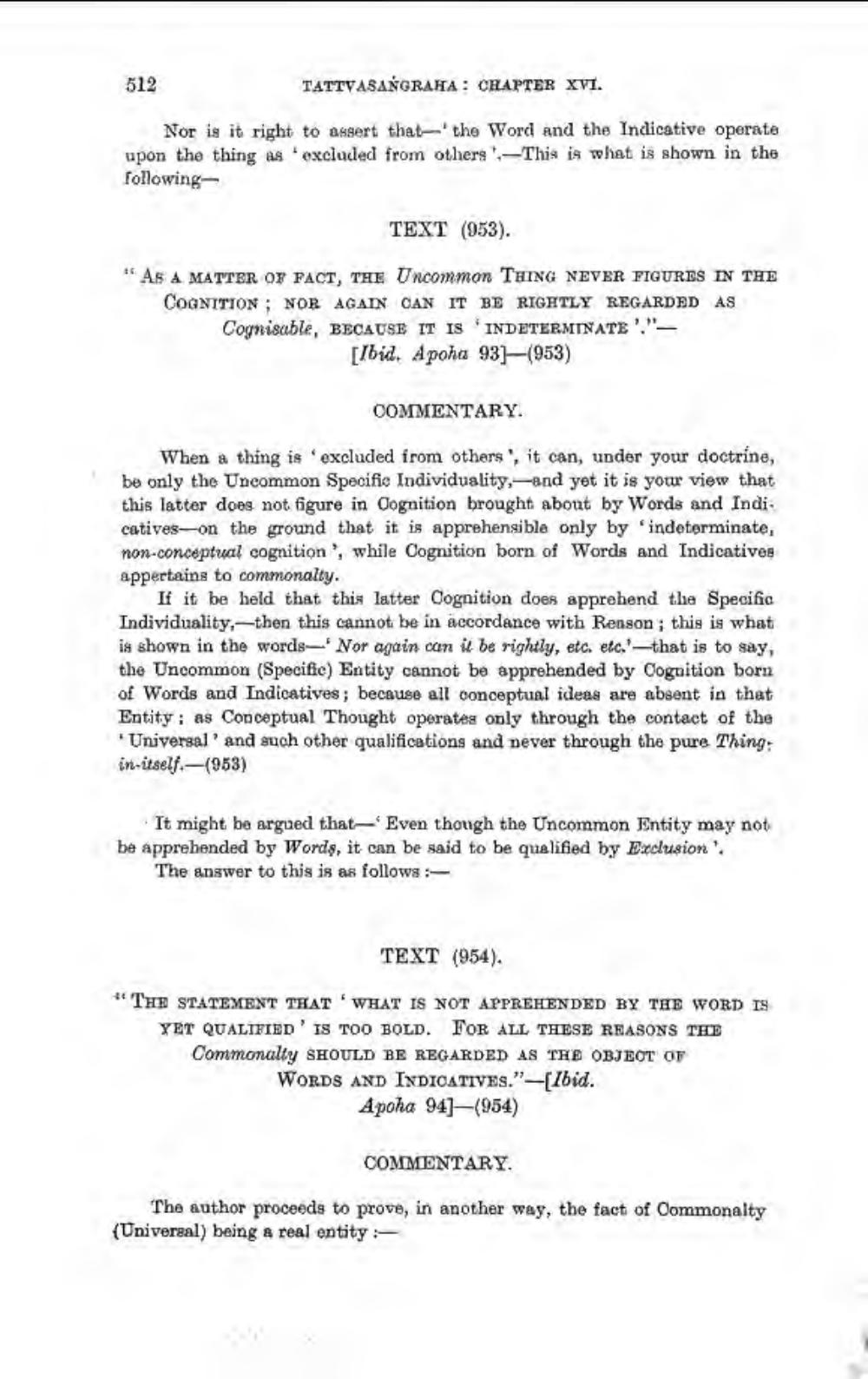________________
512
TATTVASANGRAHA : CHAPTER XVI.
Nor is it right to assert that the Word and the Indicative operate upon the thing as excluded from others-This is what is shown in the following
TEXT (953).
*As A MATTER OF FACT, THE Uncommon THING NEVER FIGURES IN THE COGNITION : NOR AGAIN CAN IT BE RIGHTLY REGARDED AS Cognisable, BECAUSE IT IS INDETERMINATE'."
[Ibid. A poha 931—(953)
COMMENTARY.
When a thing is excluded from others, it can, under your doctrine, be only the Uncommon Specific Individuality-and yet it is your view that this latter does not figure in Cognition brought about by Words and Indi. catives on the ground that it is apprehensible only by 'indeterminate, non-conceptual cognition', while Cognition born of Words and Indicatives appertains to commonalty.
If it be held that this latter Cognition does apprehend the Specific Individuality,then this cannot be in accordance with Renson; this is what is shown in the words- Nor again can it be rightly, etc. etc.'—that is to say, the Uncommon (Specifie) Entity cannot be apprehended by Cognition born of Words and Indicatives; because all conceptual ideas are absent in that Entity : as Conceptual Thought operates only through the contact of the
Universal' and such other qualifications and never through the pure Thing: in-itself:-(953)
It might be argued that Even though the Uncommon Entity may not be apprehended by Words, it can be said to be qualified by E.cclusion'
The answer to this is as follows:
TEXT (954).
* THE STATEMENT THAT WHAT IS NOT APPREHENDED BY THE WORD IS YET QUALIFIED IS TOO BOLD. FOR ALL THESE REASONS THE Commonalty SHOULD BE REGARDED AS THE OBJECT OF WORDS AND INDICATIVES."-[Ibid.
Apoha 94]—(954)
COMMENTARY.
The author proceeds to prove, in another way, the fact of Commonalty (Universal) being a real entity




